Photo

A logline is a one (or occasionally two) sentence description that boils the script down to its essential dramatic narrative in as succinct a manner as possible.
5K notes
·
View notes
Text
People talk a lot about how reading is necessary for writing, but when you really want to improve your writing, it’s important to go beyond just simple reading. Here are some things to do when reading:
Note how they begin and end the story. There are a ton of rather contradictory pieces of advice about starting stories, so see how they do it in the stories you enjoy. Don’t only look at the most popular stories, but look at your more obscure favorites.
See what strikes you. Is it fast or complicated scenes with a lot of emotions? Is it stark lines? Pithy dialogue? What do you remember the next day?
Pay attention to different styles. It’s not just whether they use past or present tense, first or third person. It’s whether the writing is more neutral or deeper inside character’s heads. Do they use italics? Parentheses? Other interesting stylistic choices? Take the ones you like and try them out in your own writing. See what works and what doesn’t.
Keep track of how they deal with other characters. Do we see a lot of secondary character each for very brief periods of time or are there a couple that show up a lot? How much information do we get about secondary characters? Do they have their own plots or do their plots revolve entirely around the main characters?
Count how many plots there are. Is there just one main plot or are there multiple subplots? Are the storylines mostly plot-based or character-based?
Pay attention to what you don’t like. If you don’t like what’s going on in a book or even just a scene, note what it is. Does the dialogue feel awkward? Are the characters inconsistent? Does the plot feel too convenient or cobbled together? Does the wording just feel off? See if you can spot those issues in your own writing, especially when reading a completed draft or beginning a later draft.
26K notes
·
View notes
Text
i just found this website that can randomly generate a continent for you!! this is great for fantasy writers

plus, you can look at it in 3d!
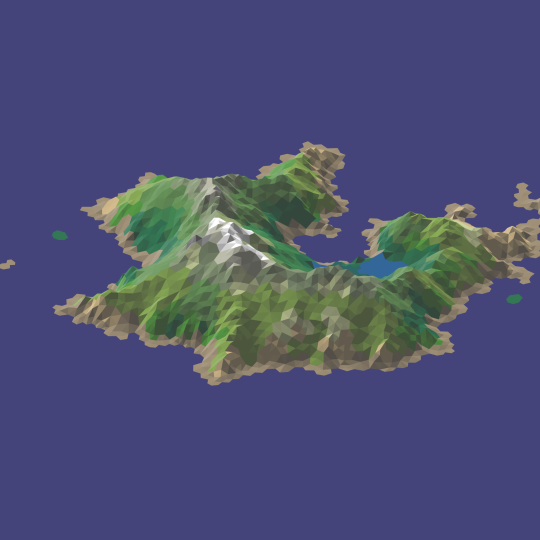
theres a lot of viewing options and other things! theres an option on-site to take a screenshot, so you don’t have to have a program for that!
you can view it here!
317K notes
·
View notes
Text
I cannot emphasize enough how much you need to read thoroughly through the terms of any publication before you send your writing to them. It is mandatory that you know and understand what rights you’re giving away when you’re trying to get published.
Just the other day I was emailed by a relatively new indie journal looking for writers. They made it very clear that they did not pay writers for their work, so I figured I’d probably be passing, but I took a look at their Copyright policy out of curiosity and it was a nightmare. They wanted “non-exclusive, irrevocable, royalty-free, perpetual, worldwide license and right to use, display, reproduce, distribute, and publish the Work on the internet and on or in any medium” (that’s copy and pasted btw) and that was the first of 10 sections on their Copyright agreement page. Yikes. That’s exactly the type of publishing nightmare you don’t want to be trapped in.
Most journals will ask for “First North American Rights” or a variation on “First Rights” which operate under the assumption that all right revert back to you and they only have the right to be the first publishers of the work. That is what you need to be looking for because you do want to retain all the rights to your work.
You want all rights to revert back to you upon publication in case you, say, want to publish it again in the future or use it for a bookmark or post it on your blog, or anything else you might want to do with the writing you worked hard on. Any time a publisher wants more than that, be very suspicious. Anyone who wants to own your work forever and be able to do whatever they want with it without your permission is not to be trusted. Anyone who wants all that and wants you to sign away your right to ever be paid for your work is running a scam.
Protect your writing. It’s not just your intellectual property, it’s also your baby. You worked hard on it. You need to do the extra research to protect yourself so that a scammer (or even a well meaning start up) doesn’t steal you work right from under you nose and make money off of it.
75K notes
·
View notes
Photo
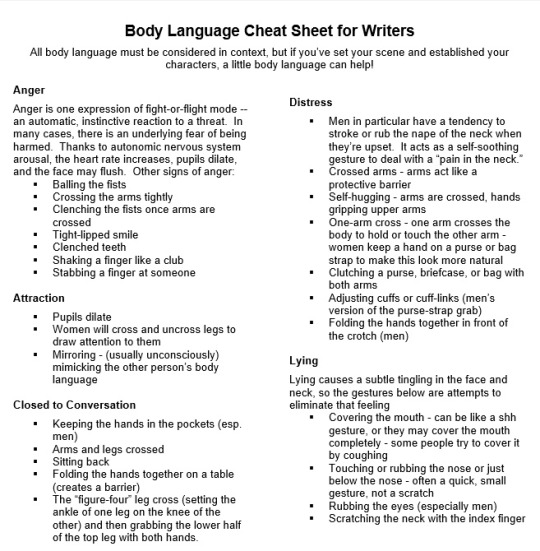
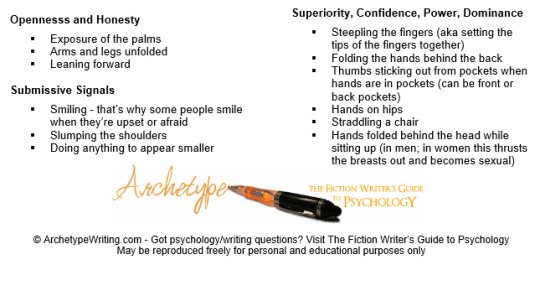
Body Language Cheat Sheet for Writers
As described by Selnick’s article:
Author and doctor of clinical psychology Carolyn Kaufman has released a one-page body language cheat sheet of psychological “tells” (PDF link) fiction writers can use to dress their characters.
467K notes
·
View notes
Photo
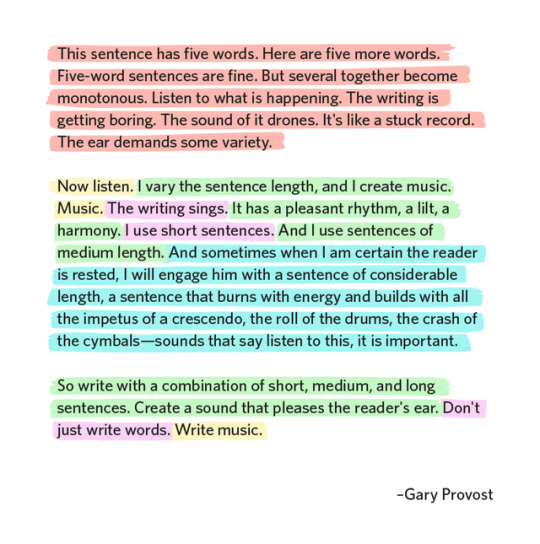
Seven years after, I see you again 😚
137K notes
·
View notes
Text
more on writing muslim characters from a hijabi muslim girl
- hijabis get really excited over pretty scarves - they also like to collect pins and brooches - we get asked a lot of questions and it can be annoying or it can be amusing, just depends on our mood and personality and how the question is phrased - common questions include: - “not even water?” (referring to fasting) - hijabis hear a lot of “do you sleep in that?” (we don’t) and “where is your hair?” (in a bun or a braid, usually) - “is it mooze-slim or mozzlem?” (the answer is neither, it’s muslim, with a soft s and accent on the first syllable) - “ee-slam or iz-lamb?” (it’s iss-laam, accent on the first syllable) - “hee-job?” (heh-jahb, accent on the second syllable)
- “kor-an?” (no. quran. say it like koor-annn, accent on the second syllable) - people tend to mess up our names really badly and you just get a sigh and a resigned nod or an awkward smile, maybe a nickname instead - long hair is easy to hide, short hair is harder to wrap up - hijab isn’t just covering hair, it’s also showing as little skin as possible with the exception of face, hands, and feet, and not wearing tight/sheer clothing - that applies to men too, people just don’t like to mention it ( i wonder why) - henna/mehendi isn’t just for special occasions, you’ll see people wearing it for fun - henna/mehendi isn’t just for muslims, either, it’s not a religious thing - henna/mehendi is not just for women, men also wear it, especially on their weddings - there are big mehendi parties in the couple of nights before eid where people (usually just women and kids) gather and do each other’s mehendi, usually just hands and feet - five daily prayers - most muslim kids can stutter through a couple verses of quran in the original arabic text by the age of seven or eight, it does not matter where they live or where they’re from or what language they speak natively - muslim families tend to have multiple copies of the quran - there are no “versions” of the quran, there has only ever been one. all muslims follow the exact same book - muslims have no concept of taking God’s name in vain, we call on God at every little inconvenience - don’t use islamic phrases if you don’t know what they mean or how to use them. we use them often, inside and outside of religious settings. in islam, it is encouraged to mention God often and we say these things very casually, but we take them very seriously - Allahu Akbar means “God is Greatest” (often said when something shocks or surprises us, or if we’re scared or daunted, or when something amazing happens, whether it be good or bad; it’s like saying “oh my god”) - Subhan Allah means “Glory be to God” (i say subhan Allah at the sky, at babies, at trees, whatever strikes me as pleasant, especially if it’s in nature) - Bismillah means “in the name of God” and it’s just something you say before you start something like eating or doing your homework - In Shaa Allah means “if God wills” (example: you’ll be famous, in shaa Allah) (it’s a reminder that the future is in God’s hands, so be humble and be hopeful)
- Astaghfirullah means “i seek forgiveness from Allah” and it’s like “god forgive me” - Alhamdulillah means “all thanks and praise belong to God” and it’s just a little bit more serious than saying “thank god” (example: i passed my exams, alhamdulillah; i made it home okay, alhamdulillah) - when i say we use them casually, i really mean it - teacher forgot to assign homework? Alhamdulillah - our version of “amen” is “ameen” - muslims greet each other with “assalamu alaikum” which just means “peace be on you” and it’s like saying hi - the proper response is “walaikum assalam” which means “and on you be peace” and it’s like saying “you too”
222K notes
·
View notes
Text
Normally when I see posts like these I already know them, but I didn’t know really any of these!
IT’S NOT ‘PEEKED’ MY INTEREST
OR ‘PEAKED’
BUT PIQUED
‘PIQUED MY INTEREST’
THIS HAS BEEN A CAPSLOCK PSA
702K notes
·
View notes
Note
How do I write a really smart character when I myself am stupid?
[THIS POST] addresses this question, and [THIS] post is about writing witty characters and banter when you aren’t confident in that way yourself. If you need more clarification, please ask again.
–Mason
134 notes
·
View notes
Text
So You’ve Decided to Move to the Rural South
Congratulations! However, depending on where you’re from, there are probably a few things here that will come as a nasty shock to you. Here are a few of those things. Consider this as a guide. It is by no means exhaustive.
1. When you’re driving past your neighbors, you wave at them. This sends a signal that says “I am one of you, I belong here, I see you”. It also sends another, arguably more important signal that says “I promise not to scrape the left side of your F150 with the left side of my F150”.
2. Yes, everybody here drives an F150. Yes, every single one of those F150s is absolutely necessary (according to the owner).
3. The sweet tea is going to be sweeter than you expect. No matter how sweet you expect it to be, it’s going to be sweeter.
4. “Corn from a jar” means moonshine.
5. “Y’all” is a contraction of “You all” that means “You guys” or “all of you”. “Ya’ll” doesn’t mean anything, as far as I’m aware.
6. Tennesseans WILL fight you if you say anything bad about Dolly.
7. Please stop making Deliverance jokes. We’ve heard them all. They’re not funny anymore.
8. It’s hot. It’s so, so hot. If you’re from a dry place, you don’t even understand what I mean when I say it’s hot. Every part of you will sweat and you won’t feel any cooler because the air is so full of water that no sweat will evaporate. You’ll just be hot AND sweaty. It’s basically a jungle. The windows fog up from the outside.
9. If you have a house with a screened-in porch, that screen is a blessing from God. Do not remove the screen to “let the air circulate through”. There is no air to circulate. There are a lot of mosquitoes, however, who are more than happy to check out your circulation. Which brings me to my next point…
10. Look around you. Do you see mountains on every side? That’s right, if you live in Appalachia you essentially live in a bowl. How fast does the air move around in a bowl? That’s why it’s 92 degrees and 80% humidity at midnight…
11. … and it’s also 92 degrees and 100% humidity in the middle of the day! So if you’re from a place that maybe is a little less humid and you’re thinking of going for a jog outside, don’t bother. All the sweat-wicking microfiber in the world won’t save you when there is nowhere to wick the sweat to. Just go to Planet Fitness.
12. You can’t defeat the kudzu. It’ll come back next year. Save yourself the trouble and the Roundup exposure.
13. You also can’t defeat the insect life. A wasp or a beetle will get into your house eventually. Your best bet is peaceful coexistence, because paper wasps (the type you’re most likely to see) are not aggressive and keep other, nastier insects at bay.
14. There will probably be a pack of free-range dogs in your neighborhood, probably without collars. They’re friendly. Give ‘em a pat.
15. Seriously, wave at your neighbors. It’s rude not to.
16. A firework echoes, a gunshot doesn’t. This comes up more than you’d think. Except on the 4th of July, when you’ll hear both.
17. Opossums eat ticks and are nearly immune to rabies, so if you see one making its dumb little way across the road, please do your best not to hit it.
18. Deer hunting is actually vitally important to maintain the ecosystem. We killed off all the whitetail deer’s natural predators, and now there’s just too god damn many of them. Hunting permits are strictly controlled by the state’s Fish and Wildlife Department, and they give out enough necessary to maintain the deer population. If the deer population isn’t maintained, they outgrow their food supply and begin to starve. You may find it distasteful but trust me, it is way better than watching deer slowly starve to death.
19. The cooler you just bought has a ruler on top for measuring fish. See #18.
20. Sometimes our local politicians say terrible things. If this bothers you, you are welcome to:
a. Vote for a candidate that opposes the terrible politician b. Volunteer for a candidate that opposes the terrible politician c. Write letters to the terrible politician telling him he’s terrible and should stop that d. Run for office yourself
You are not welcome to:
e. Talk about how everybody who lives here is an inbred racist hick
21. Most importantly, please do not come here and think you’re going to magically change everything that’s wrong. Give the people here some credit. If there were easy solutions to the problems they face, they would have solved their problems themselves already. Life has its own pace here, and the problems in Appalachia and the South generally are deep-seated and far-reaching. You don’t have the magic solution to the opioid crisis, racism, wage stagnation, brain drain, economic inequality, generational poverty, chronic disease, environmental contamination, resource exploitation, or any other of the issues that are endemic to this area. It is at best insulting and at worst actively harmful to have a person who has zero understanding of this region and the people who live in it come in and insist that big changes need to happen and by golly gosh, he’s the one to make them. If you want to help, listen to the people here. Support them in their fight for justice.
22. WAVE AT YOUR FUCKING NEIGHBORS.
14K notes
·
View notes
Text
Mel’s Big Fantasy Place-Name Reference
So I’ve been doing lots of D&D world-building lately and I’ve kind of been putting together lists of words to help inspire new fantasy place names. I figured I’d share. These are helpful for naming towns, regions, landforms, roads, shops, and they’re also probably useful for coming up with surnames. This is LONG. There’s plenty more under the cut including a huge list of “fantasy sounding” word-parts. Enjoy!
Towns & Kingdoms
town, borough, city, hamlet, parish, township, village, villa, domain
kingdom, empire, nation, country, county, city-state, state, province, dominion
Town Name End Words (English flavored)
-ton, -ston, -caster, -dale, -den, -field, -gate, -glen, -ham, -holm, -hurst, -bar, -boro, -by, -cross, -kirk, -meade, -moore, -ville, -wich, -bee, -burg, -cester, -don, -lea, -mer, -rose, -wall, -worth, -berg, -burgh, -chase, -ly, -lin, -mor, -mere, -pool. -port, -stead, -stow, -strath, -side, -way, -berry, -bury, -chester, -haven, -mar, -mont, -ton, -wick, -meet, -heim, -hold, -hall, -point
Buildings & Places
castle, fort, palace, fortress, garrison, lodge, estate, hold, stronghold, tower, watchtower, palace, spire, citadel, bastion, court, manor, house
altar, chapel, abbey, shrine, temple, monastery, cathedral, sanctum, crypt, catacomb, tomb
orchard, arbor, vineyard, farm, farmstead, shire, garden, ranch
plaza, district, quarter, market, courtyard, inn, stables, tavern, blacksmith, forge, mine, mill, quarry, gallows, apothecary, college, bakery, clothier, library, guild house, bath house, pleasure house, brothel, jail, prison, dungeon, cellar, basement, attic, sewer, cistern
lookout, post, tradepost, camp, outpost, hovel, hideaway, lair, nook, watch, roost, respite, retreat, hostel, holdout, redoubt, perch, refuge, haven, alcove, haunt, knell, enclave, station, caravan, exchange, conclave
port, bridge, ferry, harbor, landing, jetty, wharf, berth, footbridge, dam, beacon, lighthouse, marina, dockyard, shipyard
road, street, way, row, lane, trail, corner, crossing, gate, junction, waygate, end, wall, crossroads, barrier, bulwark, blockade, pavilion, avenue, promenade, alley, fork, route
Time & Direction
North, South, East, West, up, down, side, rise, fall, over, under
Winter, Spring, Summer, Autumn, solstice, equanox, vernal, ever, never
dusk, dawn, dawnrise, morning, night, nightfall, evening, sundown, sunbreak, sunset
lunar, solar, sun, moon, star, eclipse
Geographical Terms
Cave, cavern, cenote, precipice, crevasse, crater, maar, chasm, ravine, trench, rift, pit
Cliff, bluff, crag, scarp, outcrop, stack, tor, falls, run, eyrie, aerie
Hill, mountain, volcano, knoll, hillock, downs, barrow, plateau, mesa, butte, pike, peak, mount, summit, horn, knob, pass, ridge, terrace, gap, point, rise, rim, range, view, vista, canyon, hogback, ledge, stair, descent
Valley, gulch, gully, vale, dale, dell, glen, hollow, grotto, gorge, bottoms, basin, knoll, combe
Meadow, grassland, field, pasture, steppe, veld, sward, lea, mead, fell, moor, moorland, heath, croft, paddock, boondock, prairie, acre, strath, heights, mount, belt
Woodlands, woods, forest, bush, bower, arbor, grove, weald, timberland, thicket, bosk, copse, coppice, underbrush, hinterland, park, jungle, rainforest, wilds, frontier, outskirts
Desert, dunes, playa, arroyo, chaparral, karst, salt flats, salt pan, oasis, spring, seep, tar pit, hot springs, fissure, steam vent, geyser, waste, wasteland, badland, brushland, dustbowl, scrubland
Ocean, sea, lake, pond, spring, tarn, mere, sluice, pool, coast, gulf, bay
Lagoon, cay, key, reef, atoll, shoal, tideland, tide flat, swale, cove, sandspit, strand, beach
Snowdrift, snowbank, permafrost, floe, hoar, rime, tundra, fjord, glacier, iceberg
River, stream, creek, brook, tributary, watersmeet, headwater, ford, levee, delta, estuary, firth, strait, narrows, channel, eddy, inlet, rapids, mouth, falls
Wetland, marsh, bog, fen, moor, bayou, glade, swamp, banks, span, wash, march, shallows, mire, morass, quag, quagmire, everglade, slough, lowland, sump, reach
Island, isle, peninsula, isthmus, bight, headland, promontory, cape, pointe, cape
More under the cut including: Color words, Animal/Monster related words, Rocks/Metals/Gems list, Foliage, People groups/types, Weather/Environment/ Elemental words, Man-made Items, Body Parts, Mechanical sounding words, a huge list of both pleasant and unpleasant Atmospheric Descriptors, and a huge list of Fantasy Word-parts.
Keep reading
10K notes
·
View notes
Photo
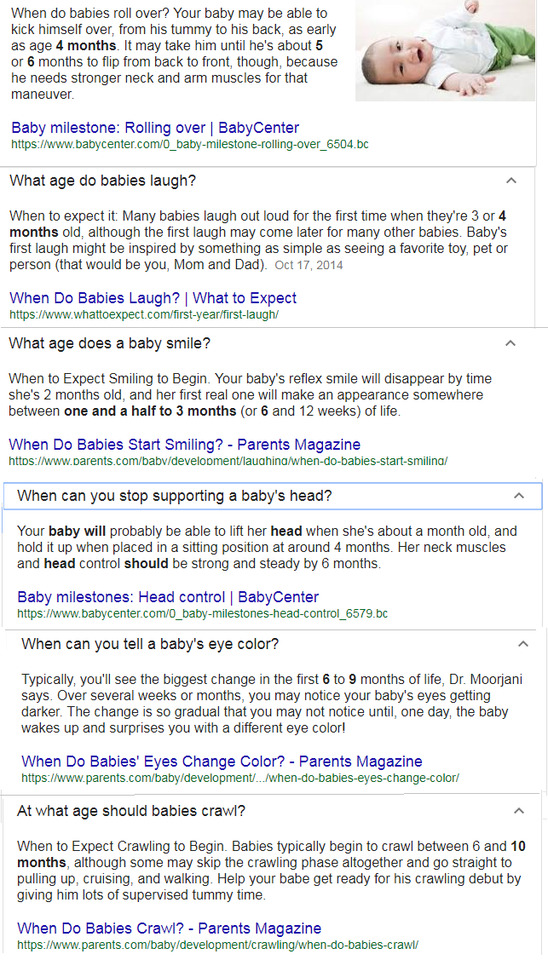
I Googled some baby milestones to work out Human!Enrique’s age.
We see actual-human-baby Enrique Nuñez in S1E7 ‘To Catch A Changeling’ (the episode right before ‘Adventures In Trollsitting’, where he gets swapped for a Changeling in the opening), when Claire invites Jim over to study.
Enrique is able to hold his head up and is seen repeatedly rolling over in his crib; he has clearly brown eyes, rather than the grey-blue eye colour humans are often born with; and he laughs and smiles in response to other people.
We don’t see him crawl, but Not Enrique does while in human form (I headcanon that what a Changeling can do as a human is, to varying degrees, affected by the human body’s developmental stage), and pixie-hallucination-Enrique is crawling while Claire chases after him in S1E20 ‘Where Is My Mind?’; it’s plausible that Enrique is able to crawl and just not shown doing it.
Therefore, Enrique Nuñez was 4, 5, or 6 months old when he was swapped for a Changeling.
Human babies can also start speaking at 6 months, but we never hear Enrique say anything, and Not Enrique only speaks while in troll form. This point has a lot more variation - 6 months is the earliest humans begin to use words; Enrique may be able to say ‘Mama’ or ‘Papa’ but simply happen not to speak while on-camera; as the second-born child, statistically speaking, he probably hasn’t been getting the same amount of exclusive parental attention that first-borns and only-children get, and it’s common for the first-born to also be the child in the family who starts speaking at the youngest age; and Enrique might have a genuine speech delay that simply hasn’t become apparent yet - but I am confident in saying Enrique was probably not older than 6 months when kidnapped.
45 notes
·
View notes
Text
resource for procrastination
if you’re anything like me, working on a computer is a dangerous thing. i’ll get distracted by everything - that one email i should respond to, all the pictures of my dog, tumblr, and so on. I recently discovered an amazing resource to stop that.
it’s called writer’s block, and is free to download!
when you open it, it shows this screen, where you can choose either a time limit or word goal

then when you start, it opens a document that fills the entire screen like this

and you cannot quit the app or open anything else until your word/time quota is filled. i just wrote half of my english speech that i’ve been putting off all morning, and it took only 20 minutes!
so yup, it’s called writer’s block and is free for both mac and windows. enjoy!
191K notes
·
View notes
Photo

Here you go, some transparent military ranks based on hemospectrum. Enjoy.
9K notes
·
View notes
Link
Yeah I love the idea of the site, but so much of the good stuff is locked behind a subscription, and they only leery you have one world going one at once without it.
Not a horrible website but if you want more than four features, you need to pay. And they won’t let you delete your account.
262 notes
·
View notes
Text
people who don't wear glasses who are writing characters who wear glasses;
they get fogged up when we drink hot beverages. they get smudged for no reason. we will push them up using anything in our area (i.e shoulder, whatever is in my hand, scrunching my nose up so they get pushed up, etc.). they get knocked off our faces all. the. fucking. time. when we change clothes we either take them off or they fall off when we pull our shirts off. we have to clean them after being in the rain. we own multiple pairs of them, not just one lone pair for our whole lives. most people don’t wear them in the pool, but some have extra old pairs for the pool (like me). some people take them off during sex, that’s fine! but some people keep them on. they don’t get squished into your face when you kiss (most of the time. at least from what i’ve experienced and i’ve got some mf big glasses). if we look down and look back up while you talk/to peek up at something, we will just peek blindly over the top of them. we clean them on whatever item of clothing is closest. some of us have prescription sunglasses and some of us wear contacts when we need to wear sunglasses. please keep some of these in mind when you write characters with glasses cause y'all who have 20/20 vision keep telling me all characters sleep in their glasses and own the same singular pair from age 6-25 and they never clean them.
57K notes
·
View notes
Photo
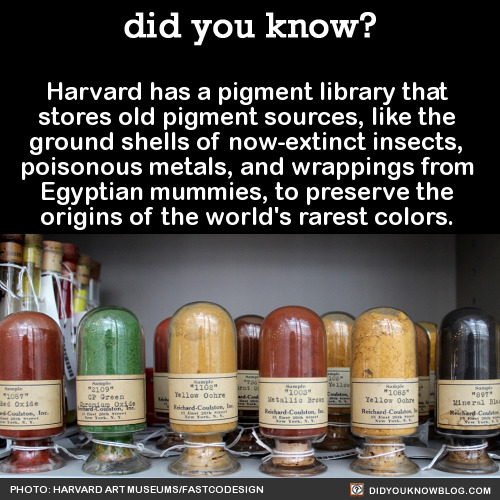
Harvard has a pigment library that stores old pigment sources, like the ground shells of now-extinct insects, poisonous metals, and wrappings from Egyptian mummies, to preserve the origins of the world’s rarest colors.

A few centuries ago, finding a specific color might have meant trekking across the globe to a mineral deposit in the middle of Afghanistan. “Every pigment has its own story,” Narayan Khandekar, the caretaker of the pigment collection, told Fastcodesign. He also shared the stories of some of the most interesting pigments in the collection.

Mummy Brown
“People would harvest mummies from Egypt and then extract the brown resin material that was on the wrappings around the bodies and turn that into a pigment. It’s a very bizarre kind of pigment, I’ve got to say, but it was very popular in the 18th and 19th centuries.”

Cadmium Yellow
“Cadmium yellow was introduced in the mid 19th century. It’s a bright yellow that many impressionists used. Cadmium is a heavy metal, very toxic. In the early 20th century, cadmium red was introduced. You find these pigments used in industrial processes. Up until the 1970s, Lego bricks had cadmium pigment in them.”
Annatto “The lipstick plant—a small tree, Bixa orellana, native to Central and South America—produces annatto, a natural orange dye. Seeds from the plant are contained in a pod surrounded with a bright red pulp. Currently, annatto is used to color butter, cheese, and cosmetics.”
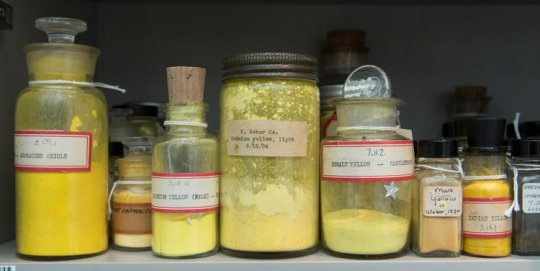
Lapis Lazuli “People would mine it in Afghanistan, ship it across Europe, and it was more expensive than gold so it would have its own budget line on a commission.”
Dragon’s Blood “It has a great name, but it’s not from dragons. [The bright red pigment] is from the rattan palm.”

Cochineal “This red dye comes from squashed beetles, and it’s used in cosmetics and food.”
Emerald Green “This is made from copper acetoarsenite. We had a Van Gogh with a bright green background that was identified as emerald green. Pigments used for artists’ purposes can find their way into use in other areas as well. Emerald green was used as an insecticide, and you often see it on older wood that would be put into the ground, like railroad ties.”
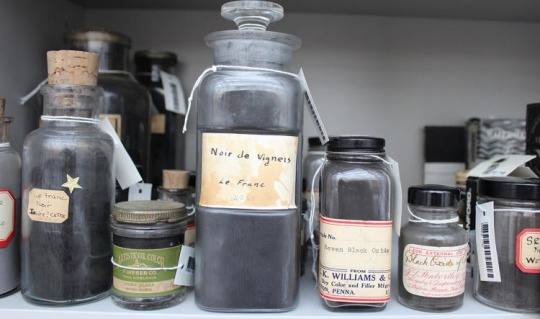
Source
111K notes
·
View notes